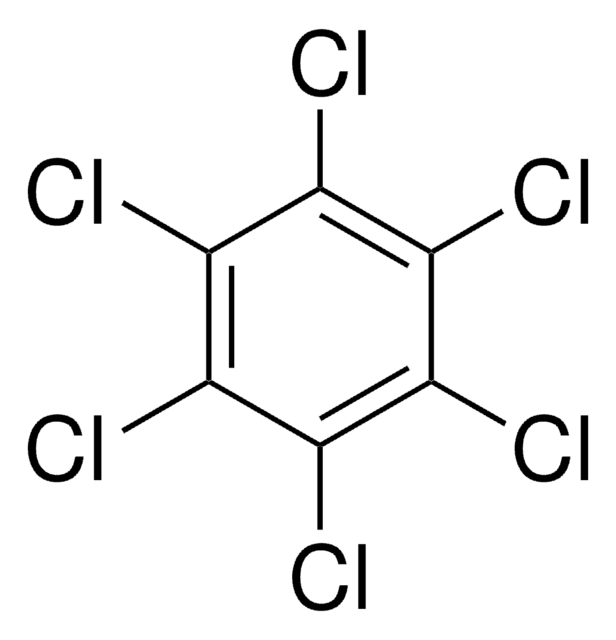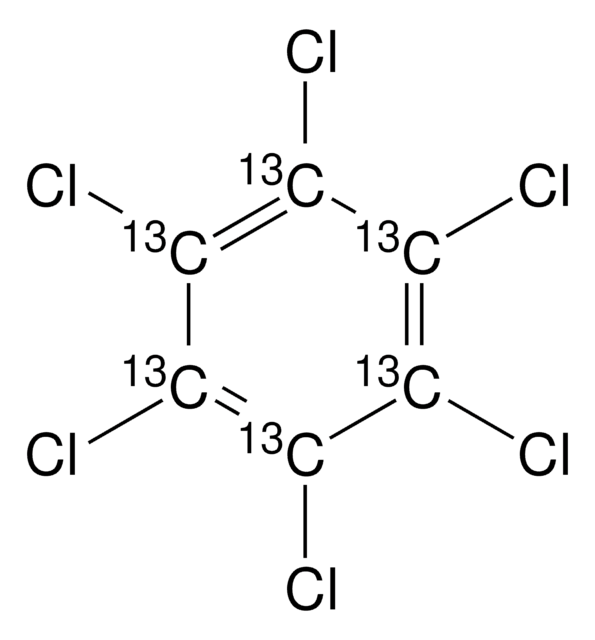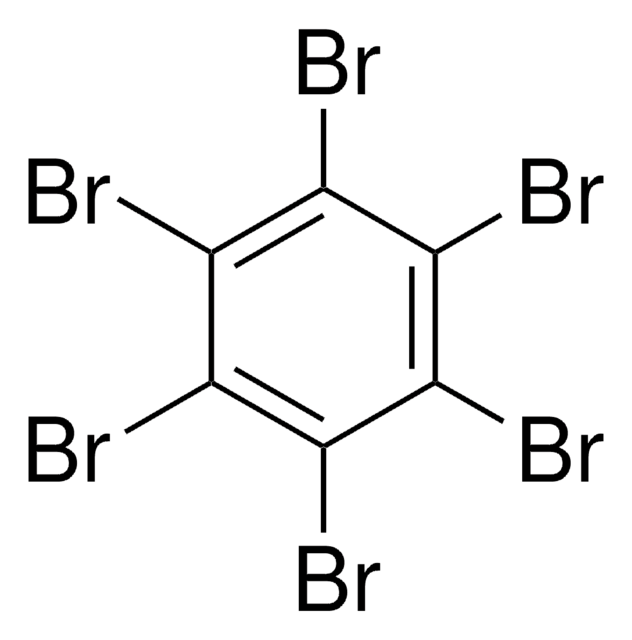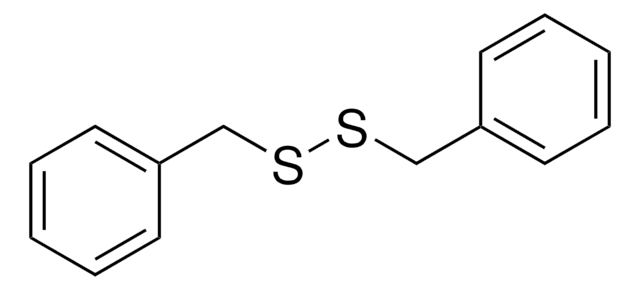40008
Hexachlorobenzene solution
certified reference material, 1000 μg/mL in acetone
About This Item
Recommended Products
grade
certified reference material
TraceCERT®
Agency
MISA (Canada) Group 22
product line
TraceCERT®
CofA
current certificate can be downloaded
feature
standard type calibration
packaging
ampule of 1 mL
concentration
1000 μg/mL in acetone
technique(s)
HPLC: suitable
gas chromatography (GC): suitable
application(s)
agriculture
environmental
format
single component solution
storage temp.
2-8°C
SMILES string
Clc1c(c(c(c(c1Cl)Cl)Cl)Cl)Cl
InChI
1S/C6Cl6/c7-1-2(8)4(10)6(12)5(11)3(1)9
InChI key
CKAPSXZOOQJIBF-UHFFFAOYSA-N
Looking for similar products? Visit Product Comparison Guide
Application
Other Notes
Legal Information
Signal Word
Danger
Hazard Statements
Precautionary Statements
Hazard Classifications
Aquatic Chronic 2 - Carc. 1B - Eye Irrit. 2 - Flam. Liq. 2 - STOT SE 3
Target Organs
Central nervous system
Supplementary Hazards
Storage Class Code
3 - Flammable liquids
WGK
WGK 3
Flash Point(F)
1.4 °F
Flash Point(C)
-17 °C
Choose from one of the most recent versions:
Certificates of Analysis (COA)
It looks like we've run into a problem, but you can still download Certificates of Analysis from our Documents section.
If you need assistance, please contact Customer Support.
Already Own This Product?
Find documentation for the products that you have recently purchased in the Document Library.
Protocols
GC Analysis of Agricultural Pesticides (Standard) on SLB®-5ms
Our team of scientists has experience in all areas of research including Life Science, Material Science, Chemical Synthesis, Chromatography, Analytical and many others.
Contact Technical Service











